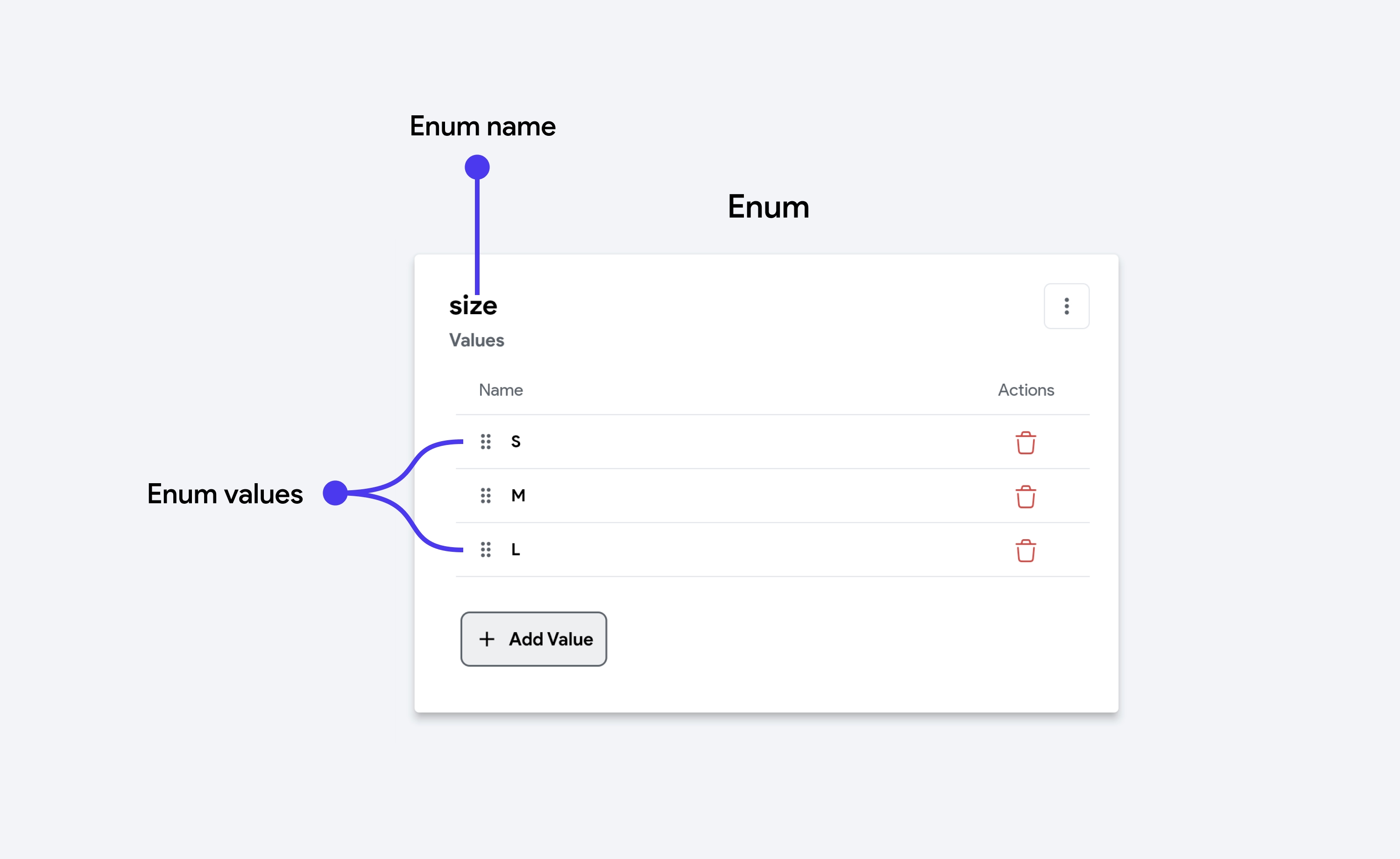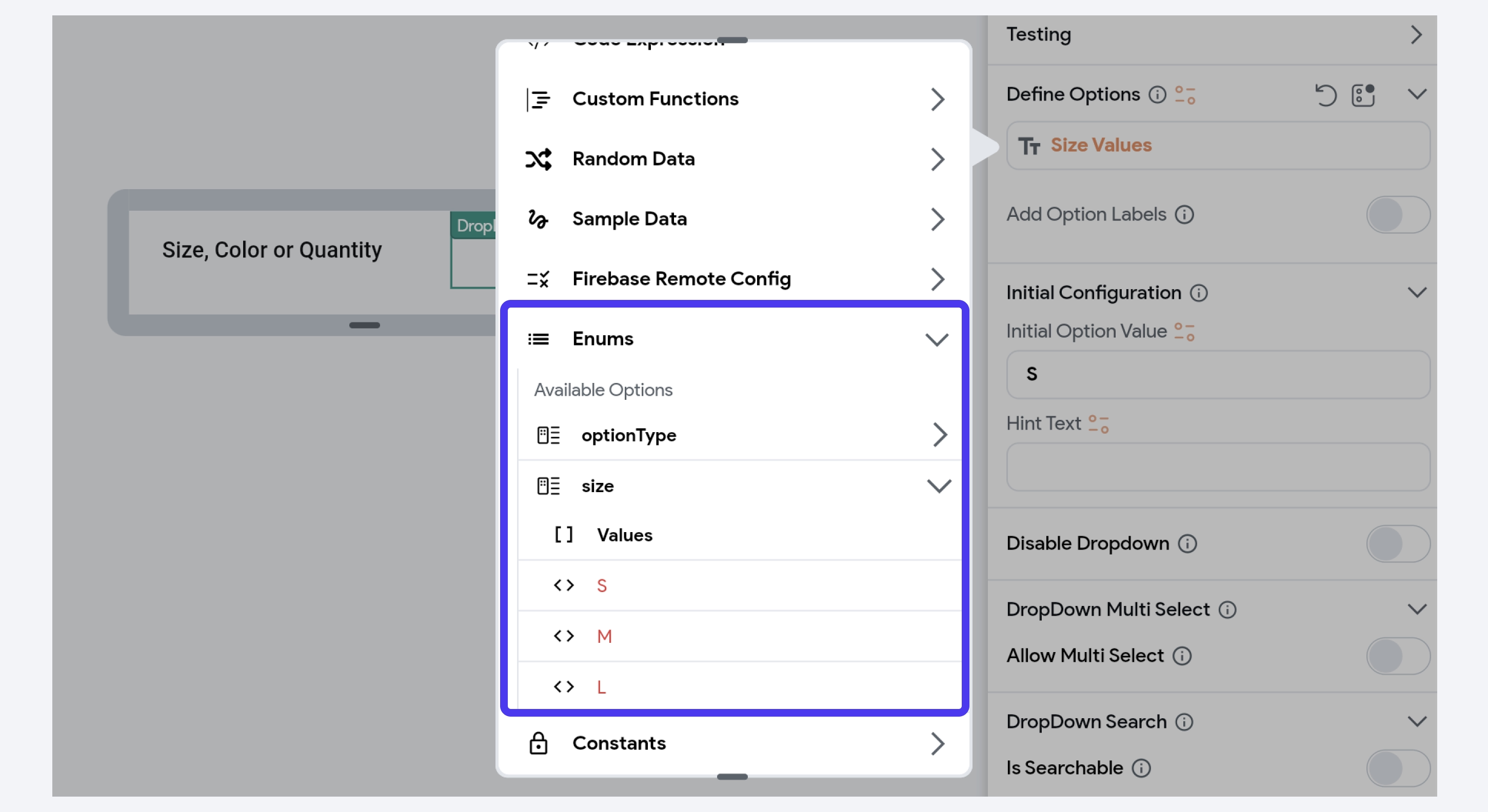Enums
In FlutterFlow, Enums (enumerations) provide a method for defining a set of named constants. They are typically used to represent a group of related values in a more readable and safe manner.
They prevent invalid values from being assigned. For example, if you have an enum for days of the week, you can't mistakenly assign a non-existent day. In contrast, with strings or numbers, you might accidentally use an invalid or misspelled value like "Sundey" or "Sinday".

Here are some real-world examples where using Enums is beneficial:
- Application States: A media player might use enums to keep track of playback states (e.g., playing, paused, stopped).
- Product Types, Sizes, or Categories: A clothing store app might use enums to categorize clothing sizes (small, medium, large).
- Order or Process Status: For tracking the status of orders, processes, or tasks (pending, inProgress, completed, canceled).
Create and use Enums
- You can create Enums from the left side navigation menu and add values to it.
- Access the Enum values by navigating to the Set from Variable menu, then selecting Enums > [your enum name] > Values.

Naming Convention
When naming enums, always use UpperCamelCase, and for enum values, use lowerCamelCase, as recommended by the Dart Style Guide. To learn more, refer to the guide on Naming Variables & Functions.